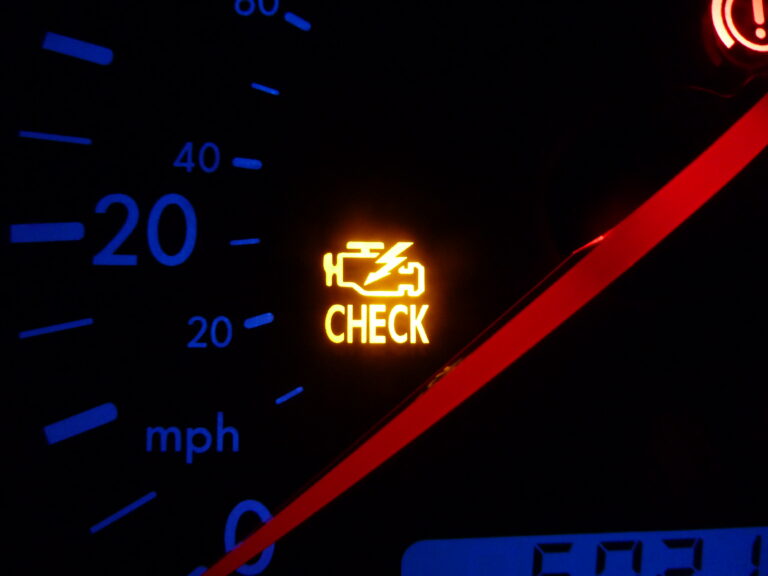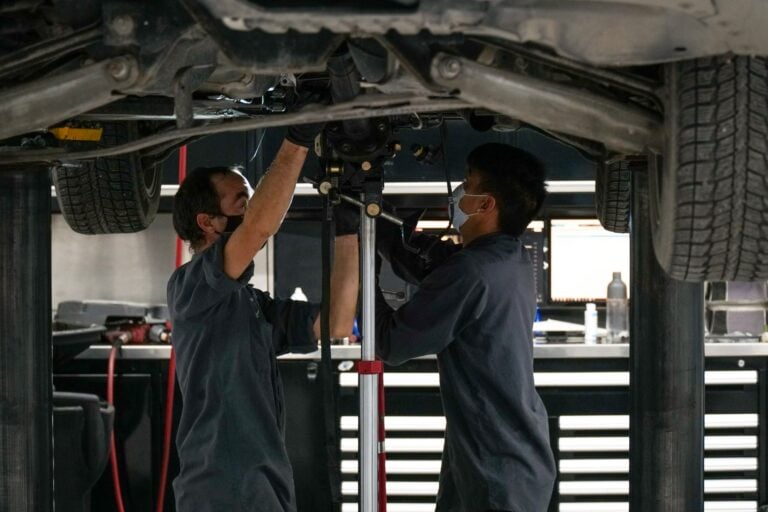The check engine light is a familiar sight for every vehicle owner. It can be a source of concern and uncertainty, leaving you wondering what could be wrong with your vehicle. In this post, we will explore the common reasons why your check engine light may come on and what you can do about it!
Understanding the Check Engine Light
The check engine light, also known as the malfunction indicator lamp (MIL), is a warning system in your vehicle’s dashboard. When lit up, it indicates that the onboard diagnostic system has detected an issue with your vehicle’s engine or emissions system. It serves as an early warning, allowing you to take action and address the underlying problem as soon as you can.
Solid vs. Flashing Check Engine Light
A solid light indicates a non-urgent issue, whereas a blinking or flashing light signifies a more severe problem that requires immediate attention.
If your check engine light is flashing, you should stop driving your vehicle and get your car towed into your dealership. In either case, it is recommended to consult a professional technician to resolve the issue.

Common Reasons Why Your Check Engine Light is Solid
1. Loose or Damaged Gas Cap
Believe it or not, something as simple as a loose or damaged gas cap can trigger the check engine light. A loose cap can cause a leak in the fuel system, leading to a drop in fuel efficiency and increased emissions. Checking that your gas cap is tight is one of the first things you can do if your check engine light is on.

2. Faulty Oxygen Sensor
An oxygen sensor measures the amount of oxygen in the exhaust gases and helps ensure optimal fuel efficiency and emissions control. A bad O2 sensor can damage your spark plugs, catalytic converter, and lead to reduced fuel economy. We recommend getting this sensor looked at by Birchwood Service to see if it is the issue.
3. Catalytic Converter Issues
A failing or malfunctioning catalytic converter can trigger the check engine light and lead to reduced engine performance, increased emissions, and potential damage to the vehicle’s exhaust system. Luckily this can be prevented by doing regular maintenance such as oil changes.
4. Malfunctioning Mass Airflow Sensor
The mass airflow sensor measures the amount of air entering the engine and is important for proper fuel delivery. If your sensor isn’t working it can cause inaccurate fuel calculations, which reduces engine performance and can damage other components. This can be resolved by cleaning your airflow sensor, or it may need to be replaced.

Knowing the common reasons why your engine light activates can help you address underlying problems sooner. You can maintain the reliability of your engine by consulting a professional technician at Birchwood Service and conducting proper maintenance.
Read More: How to Prolong the Life of your Vehicle


